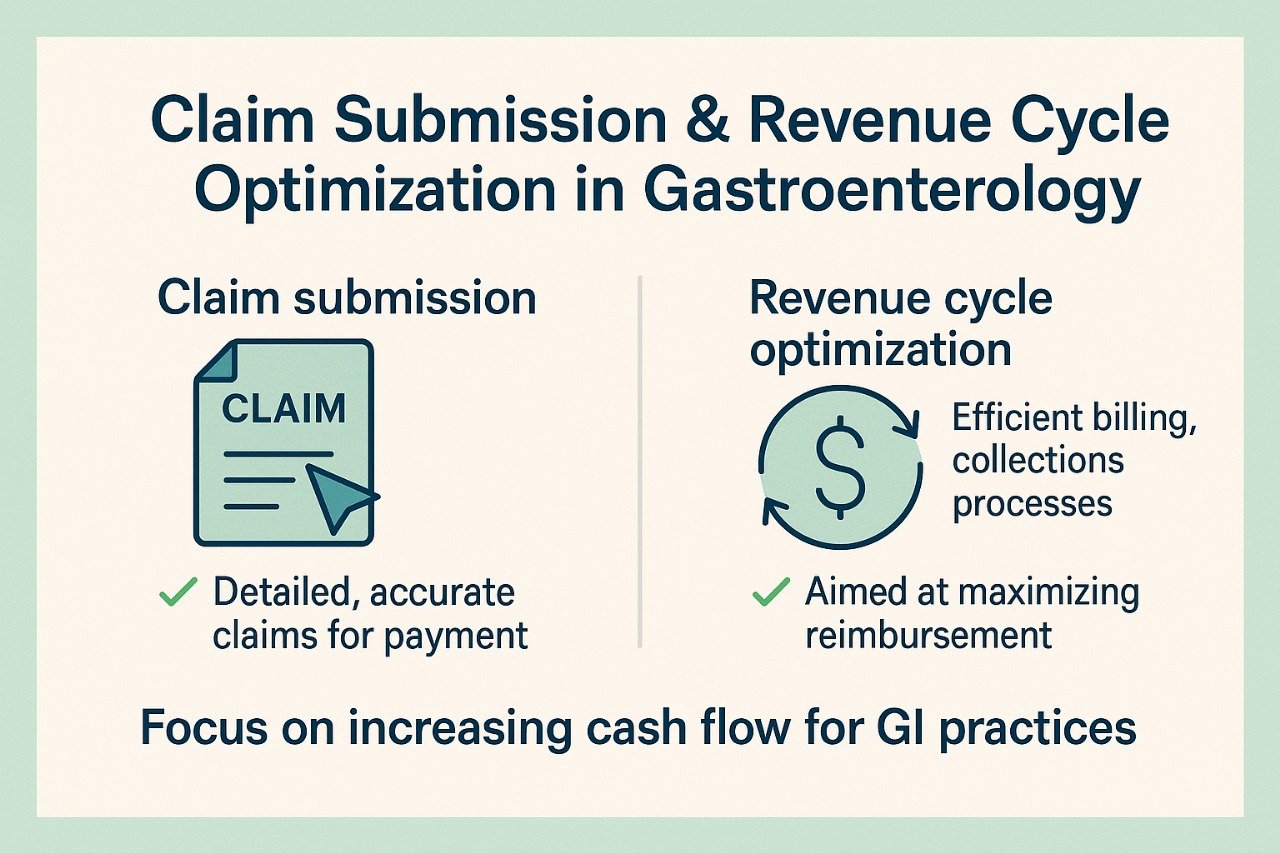
For gastroenterology practices, a robust Revenue Cycle Management (RCM) strategy is essential to ensure financial sustainability and smooth operational workflows. RCM encompasses every stage from patient registration to final reimbursement, with each phase vulnerable to errors that can result in claim denials, delayed payments, or revenue leakage. In particular, front-end issues such as incorrect patient names, date of birth, insurance policy numbers, or incomplete eligibility verification continue to account for a large portion of rejections (Wikipedia, 2024). These seemingly minor oversights can disrupt the entire revenue stream, underscoring the importance of accurate and efficient data capture at the point of care.
To optimise performance, GI practices closely monitor key performance indicators (KPIs) such as Accounts Receivable (AR) days, first-pass acceptance rate, denial rate, and collection percentages. These metrics serve as critical diagnostic tools, helping practices identify recurring inefficiencies and system-wide bottlenecks in billing processes. A denial rate above industry benchmarks, for instance, can signal poor documentation or faulty claim scrubbing procedures. In response, successful practices not only track these KPIs but also implement corrective actions in real-time to limit financial losses and improve overall revenue flow.
In recent years, advanced technologies such as Artificial Intelligence (AI) and Robotic Process Automation (RPA) have emerged as transformative tools in revenue cycle optimisation. Many gastroenterology providers are now integrating these technologies to automate repetitive billing functions, streamline claim submissions, and reduce human error. One noteworthy example is Omega Healthcare, which successfully automated 60–70% of its billing operations, resulting in a 40% reduction in documentation time, 50% acceleration in turnaround time, and a saving of 15,000 employee hours per month, ultimately delivering a 30% return on investment (ROI) (Business Insider, 2023). These results illustrate how AI-driven RCM solutions can not only cut costs but also drastically improve billing accuracy and speed.
Beyond automation, best practices in GI revenue management include the formation of dedicated denial management teams. These teams focus on analysing Explanation of Benefits (EOB) statements, conducting root-cause analysis of rejected claims, and implementing strategies for resubmission rather than write-offs. For complex denial patterns, many practices are now turning to outsourced RCM vendors that specialise in gastroenterology billing. These vendors offer tailored solutions, deep knowledge of payer rules, and compliance protocols that improve claim resolution rates and maintain cash flow consistency (Plutus Health Inc., 2024).
In conclusion, gastroenterology practices must adopt a proactive and data-driven approach to claim submission and RCM to remain profitable in an increasingly complex billing landscape. By combining accurate front-end data capture, KPI monitoring, AI/RPA automation, and specialised denial management, GI practices can significantly reduce claim rejections and financial inefficiencies. Ultimately, these measures contribute to stronger practice performance, improved patient experience, and sustained revenue integrity in a highly regulated healthcare environment.



